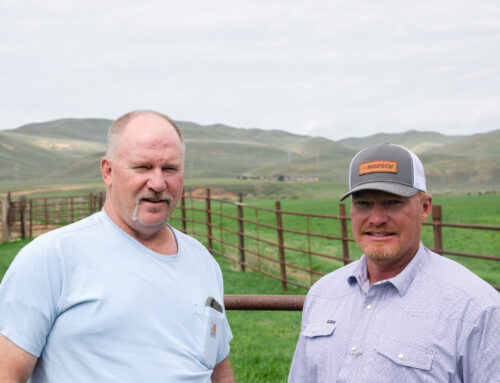NC Governor Suggests Regulating THC Like Alcohol, Orders Cannabis Task Force
June 4, 2025
North Carolina is one of eight states that has yet to legalize a medical cannabis program, but Gov. Josh Stein is hoping to tame the “Wild West” of the Tar Heel State’s rampant THC market through new regulations.
The democratic executive announced June 3 that he’s creating a State Advisory Council on Cannabis through an executive order to help establish new rules for intoxicating THC products that have swelled in retail corridors near schools and universities in the aftermath of the federal legalization of hemp via the 2018 Farm Bill.
While Stein came just shy of fully endorsing adult-use legalization, he said in an interview with WRAL Newson Tuesday that he supports allowing adults 21 and older to access products with THC.
Specifically, the governor said the terms “marijuana” and “hemp” have become irrelevant in today’s world of manufacturing consumable products infused with THC. The better question is, he said, “Will it get you high?”
Regardless of definition, both marijuana and hemp contain the two main compounds of cannabis that are best known by consumers: intoxicating THC and nonintoxicating CBD.
“It’s all cannabis,” Stein said. “Cannabis is the plant that has both of these traditional products. I believe that adults should be able to use cannabis with intoxicating THC if they want. So yes, I do support that, but what I really support is making sure that kids cannot buy it. And by law today in North Carolina, they can. That is absolutely unacceptable to me. We have to do a better job protecting our kids, but we also have to do a job protecting adults who are purchasing this because we have no idea [what’s in the products].”
The governor pointed out that the state currently doesn’t require vape shops and convenience stores selling intoxicating hemp products to age-gate their customers, nor does the state require the products to be independently lab tested for contaminants or potency.
Stein suggested that North Carolina should regulate THC similar to alcohol, with a system that helps ensure public safety.
“That’s what I want to bring order to the Wild West, that is, North Carolina,” he said. “I mean, it’s really ironic that in some ways the most liberal marijuana adult-use state in the country is North Carolina. It’s not Colorado. It’s not Massachusetts. It’s not these states that legalized it and then created a regulatory structure to sell it. It’s North Carolina, where we have no rules whatsoever. That is unacceptable.”
To address his concerns, the Stein’s executive order calls for his cannabis task force to be made up of no more than 30 members, requiring those members to come from the following groups:
- North Carolina Department of Health and Human Services
- North Carolina Department of Public Safety
- North Carolina Department of Environmental Quality
- North Carolina Department of Transportation
- North Carolina Office of State Budget and Management
- North Carolina Department of Justice
- North Carolina State Highway Patrol
- North Carolina Administrative Office of the Courts
- North Carolina Alcoholic Beverage Control Commission
- North Carolina General Assembly
- North Carolina farmers
- Eastern Band of Cherokee Indians
- District Attorneys
- Public Defenders
- Chiefs of Police
- Sheriffs
- Business Community
- Medical Professional Community
In particular, the Eastern Band of Cherokee Indians launched adult-use cannabis sales in September 2024 on their roughly 57,000-acre native Qualla Boundary in western North Carolina.
“I am charging this group with studying and recommending a comprehensive approach to regulate cannabis sales,” Stein said in a June 4 press release. “They will study best practices and learn from other states to develop a system that protects youth, allows adult sales, ensures public safety, promotes public health, supports North Carolina agriculture, expunges past convictions of simple THC possession and invests the revenues in resources for addiction, mental health and drugged driving detection. “
The governor also thanked state lawmakers for their interest in “addressing this gaping loophole in state law” that has allowed for intoxicating hemp products to largely go unchecked without regulations.
Stein’s call for a legislative fix comes on the heels of North Carolina House Rep. Jordan Lopez, D-Mecklenburg, filing House Bill 413, the Marijuana Legalization and Reinvestment Act, in March to legalize adult-use cannabis for those 21 and older and create a taxed and regulated commercial market.
Also in the House, Rep. Julia Greenfield, D-Mecklenburg, and nine of her colleagues in the lower chamber introduced the Cannabis Treatment Research Act in April. The legislation proposed legalizing medical cannabis through a research program.
However, Stein painted a picture this week of the state’s GOP-controlled Legislature wrestling in a cross-chamber conflict, notably with Sen. Bill Rabon, R-Brunswick, a cancer survivor, leading the charge on medical cannabis legalization bills passing in the Senate in 2022 and 2023, only to be killed by House leadership.
The governor announced the following individuals as co-chairs for his advisory council:
- Lawrence H. Greenblatt, M.D., state health director and chief medical officer, North Carolina Department of Health and Human Services
- Matt Scott, district attorney, prosecutorial District 20 (Robeson County)
The governor also appointed Rabon and House Rep. John Bell, R-Wayne, as members of the council.
Bell, who served as the North Carolina House majority leader from late 2016 through 2024, has ties to the hemp industry, taking on an executive role at Nashville-based Asterra Labs—a startup company manufacturing hemp products—last year, North Carolina Public Radio WUNC reported.
“My goal is to grow the company and get it to profitability, hire a bunch of people, and be a successful company,” Bell told the media outlet, suggesting he supports regulations to promote product safety for the industry.
Whether lawmakers want to ban or regulate intoxicating hemp products, legalize medical or adult-use cannabis, or keep cannabis prohibited, that’s a conversation that needs to unfold with an actionable plan amid North Carolina’s current THC landscape, Stein said.
“Part of what I want this advisory council to do is to get all of the stakeholders around the table together,” the governor said. “Republican and Democratic legislators on the House side, Republican and Democratic legislators on the Senate side, public health folks, public safety folks—we want everybody to come together to say what should it look like in North Carolina.”
As elected officials entertain the reform discussion under the governor’s cannabis advisory council plan, 71% of North Carolina voters support legalizing medical cannabis, according to a February 2025 survey conducted by Meredith College pollsters.
With no state jumping the gun on adult-use legalization before implementing a medical cannabis program, pollsters did not ask voters their opinion on broader reform in the survey.
Search
RECENT PRESS RELEASES
Related Post



